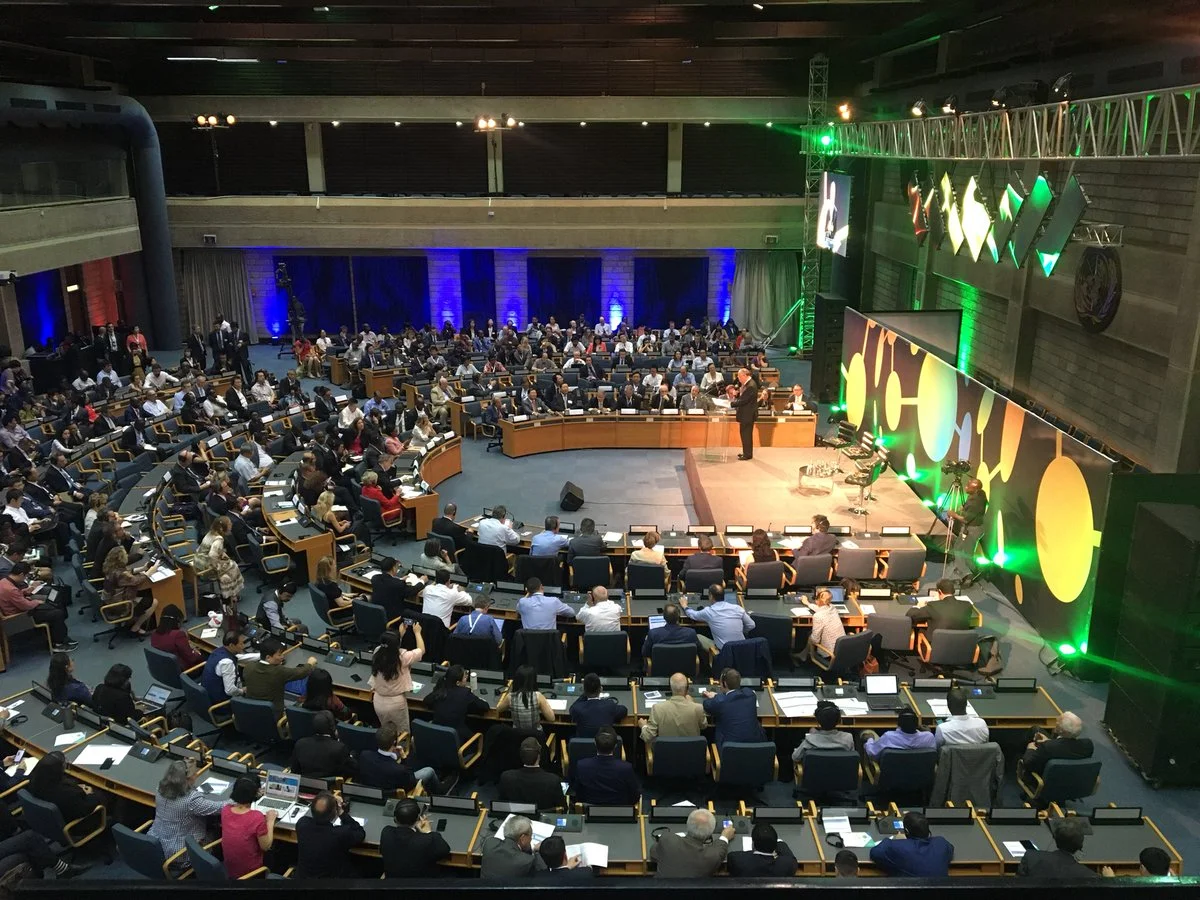UNEA daily monitor is powered by The Youth Cafe’s delegates attending the fourth UN Environment Assembly. The newsletter tracks the most important negotiations and events and delivers the daily news through the lense of young people.
The Global Major Groups attended the first day of the Science-Policy-Business Forum that was organized as part of UNEA-4. Here is a glimpse of one of the sessions held on March 9, 2019.
Environmental and Health Impacts of Food Systems was the topic of a Science-Policy-Business Forum presentation supporting the 6th Global Environmental Outlook Report (GEO6). Introduced by Eddah Kaguthi, panelists included Lorenzo Giovanni Bellu of FAO, Isis Alvarez of Global Forest Coalition, Brett Rierson of World Food Programme, and Professor Andres Guhl of the University of the Andes. The panelists provided provocative presentations and engaged in a robust discussion with attendees following their opening remarks.
A key issue emerging from the session was whether the current food and agricultural systems will be able to feed the growing human population sustainably and satisfactorily. How can we satisfy increasing nutritional needs while producing food in a sustainable way?
Food production is the biggest anthropogenic use of land, and it is the biggest driver of biodiversity and habitat loss. Livestock farming bears particular responsibility, with monocultures of soya as animal feed displacing natural habitats. It also contributes to land degradation, greenhouse gas emissions and growing antibiotic resistance.
Seeking sufficient and sustainable food production with reduced inequality and reduced propensity to malnourishment still envisages a production increase by about 40 percent. This is achievable based on currently available land, though requires specific measures to be taken.
Measures include consuming less meat, accepting higher food prices, and reforming government subsidies to producers.
Whilst the world’s food systems are very complex, small changes can make a big difference. For instance, a major cause of lost agricultural output is damage and consumption by insects.
The World Food Programme’s “Zero Loss Initiative” has introduced a simple solution: a hermetic storage of air tight bags and silos. Taking advantage of insects being killed by their own CO2 production in sealed containers is a low-cost, effective approach to reducing food waste with a number of co-benefits. Storing food at home allows greater control of time and price of sale, and greater control by women.


